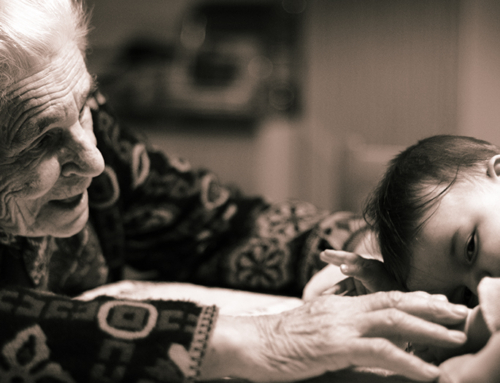By Shaylene Haswarey
Recently, I was at a restaurant with my Muslim friends when a convert remarked, “That smells so good! I remember drinking that drink at gatherings, and I miss it.” A waiter had walked by carrying alcoholic drinks. My convert friend added, “There’s simply no replacement for that.”
I truly empathized with my friend. Coming from a Mormon background, my conversion to Islam didn’t require me to relinquish many things. Alcohol, gambling, premarital intimacy, and adhering to a particular dress code were not new rules I needed to adopt.
I admit I had a weakness for pepperoni pizza. A few weeks after I embraced Islam by taking the Shahada, I went to my mom’s house. She offered me pizza, and I removed the pepperoni and ate it. Looking back, I chuckle at myself, realizing that the pork extract was still on the pizza. Fortunately, there are halal alternatives available that taste nearly identical to pork pepperoni. When it comes to alcohol, there are no real substitutes. Halal stores sell their version of nonalcoholic beer, Muslims enjoy drinking Martinelli’s, but every convert I have talked to said it’s not the same. I admired my friend for giving up something she loved, without a substitute, for the sake of Allah.
Debunking the Assumption Islam is Strict Without Alternatives
There are many other examples of activities converts may have enjoyed before becoming Muslim. For example, an activity I used to enjoy before my conversion was attending church dances. However, when I was new to Islam and my friends invited me to such an event, I explained why I couldn’t attend. I was in the ‘honeymoon’ stage of my conversion, and I didn’t feel any regret about missing it. I was incredibly excited and happy about being a Muslim, and nothing else seemed as important at the time. Alhamdulillah, I met my husband, got married a few months later, and the idea of going to church dances became a distant memory.
There is a misconception that Islam is an overly strict religion that does not allow fun. Islam is not opposed to fun and entertainment; it simply emphasizes that they should be pursued in a healthy and controlled environment. Unlike many dances that often occur in clubs where men and women freely interact, Islam provides a more modest and structured approach to such activities. When my husband and I moved to Orange County, California, a group of Muslim sisters and I discussed how we love dancing, and we decided to host sister-only dance parties. Monica McNeal Boddie was one convert who enjoyed the parties. Before her conversion, she performed traditional West African and Afro-Brazilian dances. She missed dancing after she converted. She looked for options and started roller skating. “When I saw I could still have fun, self-express, and move with joy through roller skating, I breathed a sigh of relief; this one experience went a long way to saving my religion; I verified I could still be in my job. I had not consigned myself to a necessarily dull life after all!”
Victoria Caldwell was a runway model before her conversion. She told herself she could become a Muslim if she did not have to wear ‘those clothes’. She explained that Muslim clothing available in the early 2000s was not attractive. Part of her identity was the way she dressed. She enjoyed her fashion and did not want to give it up. Six months after her conversion, she decided to wear a hijab and loose clothes for the sake of Allah.
What can a convert do if they are struggling to stop haram habits and the lifestyle they enjoyed before their conversion?
Advice and Comfort for Seeking Guidance
- You can seek guidance from a knowledgeable scholar or a trusted religious leader within your local community. It’s crucial that the person you approach is understanding and supportive, without passing judgment. Changing habits and adopting a more religiously aligned lifestyle takes time. A good religious leader will be patient, listen to your concerns, and provide assistance throughout your journey.
- Make friends with a fellow convert, as they are likely to have faced similar challenges or have had their own trials to overcome. However, just like when seeking guidance from scholars or religious leaders, it’s important to ensure that the convert you befriend is humble. Regrettably, some converts may have a “holier than thou” attitude, which can make new converts feel overwhelmed and even worse about themselves after interacting with them.
- It’s essential not to blindly accept what is deemed halal (permissible) or haram (forbidden) by any Muslim, including your spouse. Culture and tradition can sometimes become intertwined with Islamic practices. If a Muslim tells you something is haram, and it doesn’t resonate with you or doesn’t seem reasonable, it’s wise to seek advice from other sources. An example shared by an older Muslim sister convert serves as a cautionary tale, where she regretted discarding all her kids’ photos because her husband deemed them haram. Most scholars allow pictures because it is not the image-making that was referred to in the sayings of the Prophet, peace be upon him.
- Remember that you are not alone in your struggles. Even Muslims who aren’t converts face their own challenges. It’s crucial to understand that just because you see people at the mosque appearing cheerful and put-together, it doesn’t mean they don’t have their own difficulties. Keeping your feelings to yourself can be detrimental. In addition to turning to Allah in prayer, reach out to people in your community whom you feel comfortable talking to.
- Finally, remember that Islam, it is a fundamental belief that anything haram, or forbidden, is inherently detrimental to one’s well-being, while that which is halal, or permissible, is considered beneficial and wholesome. When one makes the conscious choice to forsake anything haram for the sake of Allah, they embark on a path of spiritual growth and purification. This act of devotion is often accompanied by the profound conviction that Allah, in His infinite wisdom and grace, will replace what is relinquished with something better, enriching not only one’s faith but also their life in countless ways. If one does not get something better in this world, they will certainly get it in the hereafter, which is eternal. This principle underscores the deep connection between faith and personal well-being, guiding individuals toward a life characterized by what is virtuous and enriching in accordance with Islamic principles.
Got Questions?
We have Answers. Get in touch now.








